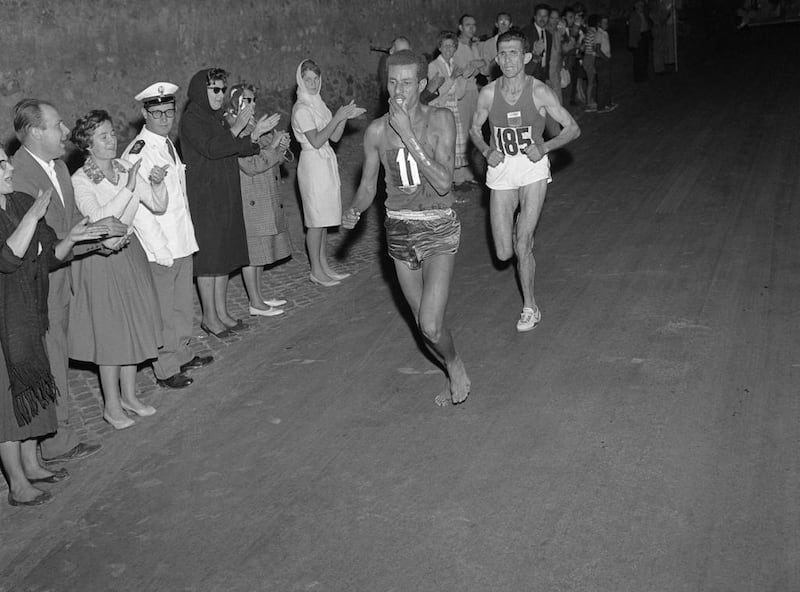‘I wanted the world to know that my country, Ethiopia, has always won with determination and heroism.”
These are the famous words of Abebe Bikila, the son of a shepherd who shocked the world at the 1960 Rome Olympics when this unknown 28-year-old athlete won gold in the marathon. In doing so, he became the first East African to win an Olympic medal.
He did it in an Olympic record time of 2:15:16 – and while running barefoot. He won his second gold four years later in Tokyo, but by that time he was wearing shoes.
He became the poster boy for every poor athlete who found themselves training without proper equipment with no sponsorship or other source of money. Whenever an athlete’s confidence wavered, or they couldn’t find support, they just had to say: “Well, Abebe did it barefoot.” A new sense of determination would return.
So while the likes of the United States and China pump millions into Olympic sports and will almost certainly bring back the largest number of medals from Rio de Janeiro, there is always a chance for someone from the poorest, smallest and even war-ravaged countries to make history.
In fact, history has already been made in Rio, with two poor countries getting their first ever gold medals. Hoang Xuan Vinh, a 41-year-old army colonel, made a near-perfect final shot in the men’s 10-metre air pistol event to give Vietnam gold. Majlinda Kelmendi, 25, created a first for Kosovo when she won the women’s 52kg judo title.
The first Olympic team made up of refugees garnered heartfelt support as it attempted to highlight the terrible plight of more than 60 million refugees around the world. The team has athletes from Syria, South Sudan, Ethiopia and the Democratic Republic of Congo. While they have not won any medals so far, they have won the public’s support.
Over the past few decades, there have been initiatives to boost the pan-Arab contingent. In total, at the time of writing, they have won 95 medals, which includes the UAE’s second Olympic medal won by Sergiu Toma who took the bronze in judo. Egypt has the highest number of Olympic medals, 26, followed by Morocco with 22.
Turkey alone has won 86 medals, and it is often forgotten that it sent the first Muslim women to the Olympics. Turkish fencers Suat Asani and Halet Cambel first crossed swords at the 1936 Berlin Olympics. While failing to take home a medal, Cambel made another historic gesture that won her international acclaim when she refused to meet Adolf Hitler after being invited to do so by a Nazi official.
We should study why Arab countries relatively underperform in the World Games. Wars, political instability and a lack of funds and support play a role in some countries, but it is more than that. Just look at Ethiopia – a poor country that has 45 Olympic medals.
One of the first things aspiring Arab athletes should do is learn about and, if possible, meet the older Arab and Muslim champions who have made history at the Olympics. Several young Arab athletes I have met had no idea about successful Arab women athletes, some of whom battled death threats yet brought in gold for their home countries. Learning from heroes of our own cultures and neighbouring countries is an important foundation to build upon. Also, these heroes deserve to be honoured again and again, so that we don’t forget those who paved the way for future athletes.
The Olympics have a long tradition, from the Ancient Games that can be traced back to 776BC to the modern event that began in 1896. The ancient ones were dedicated to the pagan gods and were staged on the plains of Olympia, Greece. Today, the Olympics bring together athletes from the farthest corners of the world, with religions, backgrounds and stories as diverse as the world’s terrain. What is beautiful is that they all get a chance at winning gold and writing their own page in the book of Olympic history.
rghazal@thenational.ae
On twitter:@arabianmau





